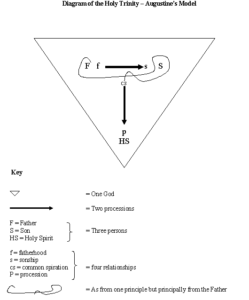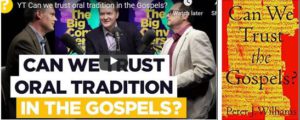
[Recapitulation: On the Trinity]
a. There is in the Divine Being but one indivisible essence (ousia, essentia). God is one in His essential being or constitutional nature. Some of the early Church Fathers used the term “substantia” as synonymous with “essentia,” but later writers avoided this use of it in view of the fact that in the Latin Church “substantia” was used as a rendering of “hupostasis” as well as of “ousia,” and was therefore ambiguous. At present the two terms “substance” and “essence” are often used interchangeably. There is no objection to this, provided we bear in mind that they have slightly different connotations. Shedd distinguishes them as follows: “Essence is from esse, to be, and denotes energetic being (Augustine On the Trinity 5.2). Substance is from substare, and denotes the latent possibility of being.… The term essence describes God as a sum-total of infinite perfections; the term substance describes Him as the underlying ground of infinite activities. The first is, comparatively, an active word; the last, a passive. The first is, comparatively, a spiritual, the last a material term. We speak of material substance rather than of material essence.” /1/ Continue reading “The Eternal General Generation of the Son: Louis Berkhof on the Trinity”







 Dog-Thoughts as we enter into the Year of the Dog: Part 4
Dog-Thoughts as we enter into the Year of the Dog: Part 4